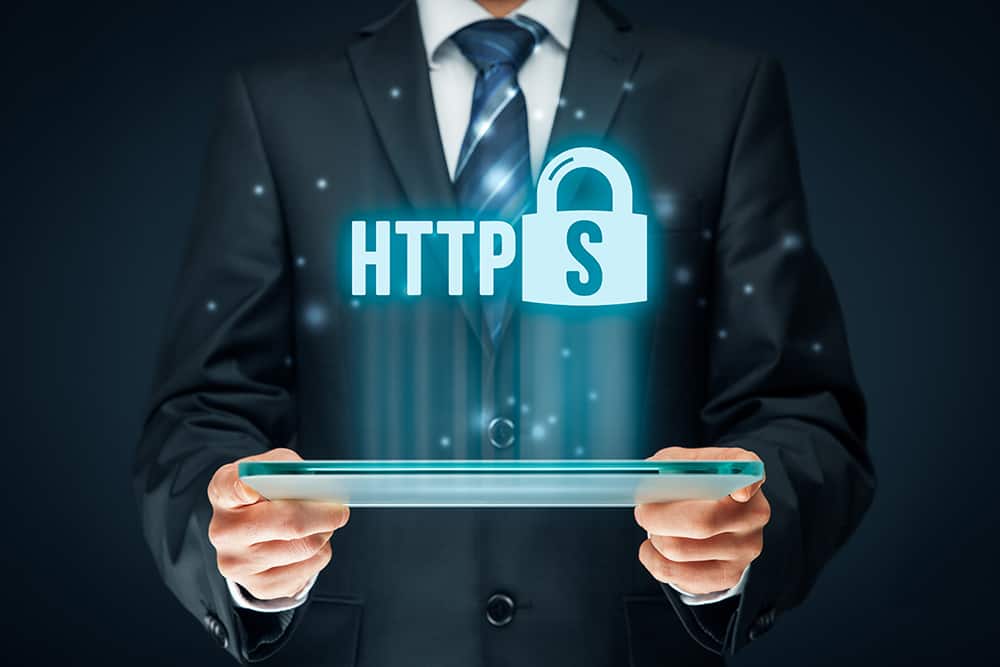The Internet opens up an ocean of opportunities for business. Every day more than 3.5 Billion people are online; searching for information, looking for best value products and services or building their network. A website becomes a 24/7 store window to a global community of consumers. Unfortunately, the vast expanse of the Internet has also opened up opportunities for unsavory characters. The ones who unscrupulously break into your store window and steal your data. You can never have enough security in the Internet and that is why you need SSL.
What is SSL?
SSL stands for Secure Sockets Layer. This is a method of encrypting communication between computer networks as data travels through the Internet. SSL will assure the recipient that the data came from a verified sender.
When you want to buy products from an e-commerce site, you will be asked to provide information to the retailer. The information you send to the retailer may go through a number of servers and networks before finally reaching its destination.
It is during this process of transfer that your information is at risk of being intercepted by the bad guys unless it is encrypted.
E-commerce sites such as Amazon and a payment processor like PayPal have SSL certification. When you interact with companies that have SSL certificates, you are guaranteed of dealing with legitimate businesses.
How Does SSL Protect Your Site’s Users?
The year 2016 was a banner year for data hackers. In that year alone, more than 2 Billion records were stolen. Blogging site Tumblr reported that 65 Million accounts were hacked. MySpace became relevant for the wrong reason as it reported 427 Million accounts were stolen. Search engine Yahoo confirmed that more than 500 million accounts were compromised.
The threat of hacking has made people more wary of patronizing Internet- based businesses. Personal information such as Social Security Number (SSN), bank account and credit card numbers once illegally obtained can place the consumer at serious risk. Credit card fraud is estimated to hit $14 Billion in 2020.
SSL facilitates communication between the user’s browser and the website it is trying to access. When a website has an SSL Certificate from a trusted source, the browser will recognize it. If the user has to send sensitive information, the SSL will encrypt it before it is sent. SSL will also be used to decrypt the information once it has been received.
If your online business requires site users to provide valuable or confidential information, it is highly advised that you get SSL certification.
SSL certificates protect your site users in the following ways:
- Enables encryption of sensitive data when an online transaction is performed. Thus, the information remains protected during the transfer.
- An SSL certificate is a unique credential; it authenticates and verifies the sender of information.
- Your site users would feel more secure because the identity of the certificate holder is verified before the certificate is released.
Think of an SSL certificate as having a seal of trust on your website. Getting an SSL certificate will give you a definite edge over a competitor that does not have it.
What Types of Information Must Be Protected?
Generally you should protect all types of information that could result in monetary loss or legal entanglements for your site users once there is a serious breach in data security.
Here is a short list of types of information that you must absolutely protect:
- User Authentication; this includes usernames and passwords to access an account. According to reports, hackers attempt to break into Facebook accounts 600,000 times every day.
- Financial Information; among the most sought after figures are credit card numbers, bank accounts and online order numbers.
- Sensitive Personal Information; some websites, especially those engaged in consumer services such as telecommunications require users to provide SSN, passport and driver’s license numbers and birth dates. These bits of information once stolen will open the user to risk of identity theft.
- Medical Information and Reports on Health Condition; these types of information should be tightly guarded as the consequences on the patient can be severe.
- Proprietary Information; highly important if you work with clients or people that require security and protection for legal documents, technology transfers, classified software and customer databases.
If you want extended coverage, you may also wish to include Customer Account areas and signup forms that require site users to provide personal information.
How Will a User Know Your Website Has SSL Certificates?
A user will know that your website has SSL Certificate in 4 ways:
- A padlock appears on the website’s browser screen.
- The website’s address in their browser reads https://. Please take note of the extra “s” that appears after http.
- The address bar’s background will have a green color which indicates the level of security it has in place.
- You might find an SSL image at the bottom of the web page.
A website that has SSL certificates assures the user of the protection and integrity of any confidential information that has to be submitted.
5 Benefits of SSL
The online business is fast becoming the preferred model of budding entrepreneurs and startups. It’s set up costs are lower than traditional brick- and- mortar establishments, comparatively easier to manage and it presents more benefits to the consumer.
The trend toward patronizing Internet- based businesses can be seen with the number of retail stores shutting down the previous years. As competition increases in the online business industry, you have to constantly find ways to win customers over to your website.
SSL Certificates can give your website the following benefits:
- Professionalize Your Business – Part of the process of getting SSL Certificates is having your website checked by the issuing authority. Having SSL Certificates tells users your website has passed quality assurance and safety tests.
- Enhance Customer Loyalty – If users know it is safe to use your site, they will come back and continue to patronize your services. They could even generate referrals for your business.
- Bring in More Shoppers – With concerns on identity theft increasing, consumers will choose websites that offer more protection and security. If asked to pick between 2 e-commerce stores; “A” which has SSL and “B” which does not, consumers will almost always choose “A”.
- Generate More Paying Customers – Many e-commerce websites are confounded by site users abandoning the purchase at the checkout counter. The reason is consumers get “cold feet” when they are asked to provide their credit card number. SSL Certificates can help push the shopper to complete the sale. A reputable checkout system will offer SSL to your user but having your own SSL will further encourage the user to become a customer.
- Protect Information – With SSL, protection goes both ways. It will also protect the information you send out to customers and site visitors. For example, as part of your marketing campaign, you might decide to send out discount coupons or promo vouchers to your customers. With SSL Certificates in place, these marketing materials will be protected with encryption when you send them out to the recipients.
Conclusion
The reality is there is no such thing as a 100% completely infallible security system. If you send confidential information to a website that does not require a password, having SSL Certificates will not be enough to prevent unauthorized viewing.
You should also know that the process of encrypting and decrypting data takes time, uses up computer resources and works the server harder. It will slow down the loading time of your website. If your application does not require the transfer of sensitive information, then SSL certification may not be necessary.
However for those who run e-commerce websites and online businesses that ask users to provide confidential data, there is no doubt you should get SSL Certificates. It will assure users their transaction will be safe and enhance the reputation of your website as a business they can trust.
If you want to get SSL for your website, this can be done for you by your website developer or web host service provider.
You will need to purchase an SSL certificate from an authorized vendor. Your web designer or web host should be able to make recommendations. The vendor will verify your identity before issuing the certificates. Be aware that an annual fee may be charged by the vendor.
Once you have the certificate, it has to be installed on your server so you can activate the “https://” connection.
The web developer will then move to configure your website to make sure all the security connections are properly in place and functioning. If you have an e-commerce business, the web developer has to ensure the certificates can do its job when a user logs in or is about to complete a transaction in the shopping cart.
If our article has encouraged you to pursue an online business that needs SSL certificates, please feel free to give us a call or an e-mail. We have successfully installed SSL certificates on a good number of websites that we have created.
Let us know if you’re interested to learn more about SSL Certificates. We’ll be more than happy to answer questions you may have on whether your online business needs it or not.







